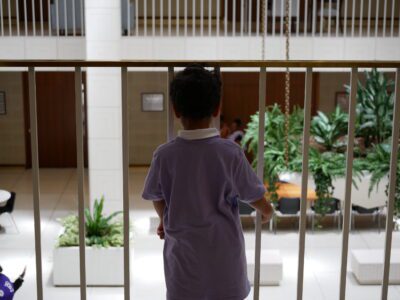
|
|
Update, June 27 at 2:40 p.m – The state Senate concurred with a House bill Thursday that approves $67.5 million to extend compensation grant funding to child care providers. The bill is now sent to Gov. Roy Cooper for his signature.
The bill directs the state to spread the money over the next two quarters, through December.
Kandice Scarberry, a spokesperson for the Department of Health and Human Services, said in a statement that the amount will not be enough to continue the grants at their current amount or to avoid program closures:
“The House PCS to SB 357 reduces Child Care Stabilization grant funding and directs NCDHHS to continue compensation grants at a reduced level through December 2024,” the statement reads. “Reduced stabilization and compensation grants will likely lead to more child care closures in the near future. The $67.5M provided to NCDHHS is insufficient to fully cover the first two quarters of the fiscal year.”
The state House unanimously passed a one-time $67.5 million allocation Wednesday to replace federal funding for child care programs that is running out next week. The aim is to provide some relief for child care while lawmakers debate a budget.
The state has been using that pandemic-era federal funding to stabilize the child care industry. Without it, experts predict, 20% of child care programs could close within a year.
If the new proposal is passed by the Senate and signed by Gov. Roy Cooper, the state would send funding to child care providers through compensation grants through the first two quarters of the fiscal year that begins July 1, at a reduced rate from the expired federal funding.
The House passed an amendment to Senate Bill 357/House Bill 448, proposed by Rep. Donny Lambeth, R-Forsyth, that increased the funding amount from previous versions of the bill.
“You’ve all heard about the child care cliff,” Lambeth said. “July 1 is an important day because funding does stop. And what this amendment does is adds in to allow funds to be allocated at least through the first quarter. It’s in our budget. It’s just prorated for the first quarter, with a hope and expectation that we’ll be back here sometime before that fund runs out to be able to pass a budget.”
The House passed the proposal Wednesday after child care providers and other advocates rallied at the legislature for state child care funding. Eight people were arrested after marching inside the legislature, The News & Observer reported.
The House and Senate budget proposals include $135 million and $136.5 million, respectively, to extend child care compensation grants through the upcoming fiscal year at 75% of the payments programs are currently receiving. Cooper’s budget proposed $200 million for this purpose. Advocates were asking for $300 million.
Child care facilities, on average, were receiving $12,452 per quarter in compensation grants in April, according to the state Department of Health and Human Services (DHHS).
Experts predict that without state investment, as many as 20% of child care programs would close within a year after the federal funding ends, and that most child care programs will increase parent fees.
That’s because many programs, encouraged by the state Division of Child Development and Early Education, used the one-time funding to increase teacher compensation to retain staff. With that funding ending, the gap probably would be covered by reduced wages and increased costs, leading to staffing shortages and less access for families.





